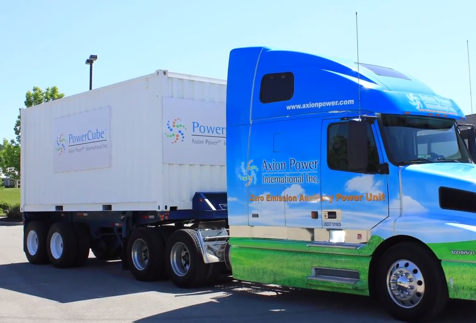Power storage is a rapidly changing renewable energy story, and Tom Granville's vision for an alternative battery chemistry is a whole new plot twist. His startup, Axion Power, makes a hybrid super-capacitor/battery without the weakness of traditional lead-acid batteries. "We've taken the lead negative electrode out of an advanced lead-acid battery and replaced that with an activated carbon electrode to get the properties of a super capacitor," Axion CEO Tom Granville told SmartGridToday.

The Axion difference: during charge and discharge, the positive electrode undergoes the same chemical reaction as a lead acid battery; but Axion's negative activated carbon electrode doesn't undergo a chemical reaction at all. This stops acid concentration swings from the charged to discharged state, eliminating corrosion - viola, a much longer battery life. After being spun out of an incubator at Carnegie Mellon and then spending close to $80 million on R&D, Axion has developed the PowerCube, a mobile, large-scale storage unit about the size of a semi-truck trailer that sends or receives power from the grid. Packed inside the PowerCube are Axion's basic PbC batteries, which look like conventional car batteries but come in 12 and 16V, and weigh about 30 to 35% less. The company builds these into 480V racks and stores those in the PowerCube (see cool and simple battery animation demo). Now Axion's batteries are penetrating the highly lucrative frequency regulation market on the grid, easily beating out natural gas power plant response times. Validating the new technology, the company just received a $1,100,000 purchase for four more PowerCube energy storage systems from a NJ-based solar installer, where the Cubes will store energy from a commercial solar panel system and provide short bursts of power to the frequency regulation market on the PJM grid.


